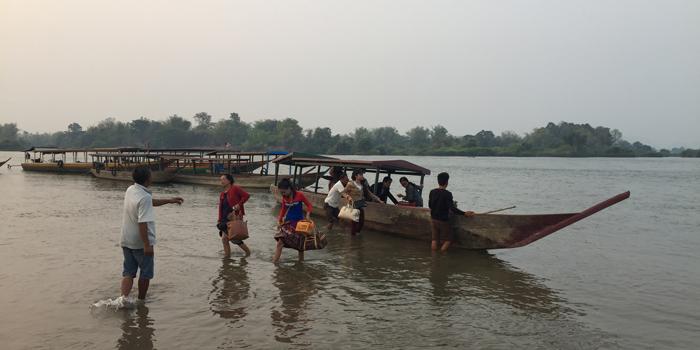Objective
This project is part of a regional Oxfam initiative that promotes the participation of local communities and civil society in water resource governance and decision-making in the Mekong region, thereby helping these groups to better sustain their livelihoods.
In Laos, this project has two objectives.
The first objective is to increase civil society participation and engagement in water resource governance. Under this objective, there are two components: Component 1 covers gender and water resources; Component 2 covers strengthening the capacity of civil society to manage water resources and participate in decision-making with regards to water.
The second objective is to support more open, inclusive, accountable and effective water resource governance, which included Component 3 on convening and promoting policy dialogue.
Project period
April 2016 to March 2019
Target Outcomes
1: Water resource governance mechanisms and processes are more inclusive and more open to a greater range of stakeholders
Project main activities
Supporting community fisheries and community-based natural resource management committees in improving the development and implementation of community management plans; this will also aim to improve the representation of women in such committees.
Supporting farmer water user groups or committees, and women's involvement in such groups.
Providing practical opportunities for local communities to learn from each other and share innovative approaches to improving water resource management with neighbouring communities across the region.
Ensuring increased space for civil society participation in water resource governance and management processes at national, regional and trans-boundary levels: for example, through working with the MRC to open up its processes to wider input.
Developing and promoting tools to ensure that community and civil society views and rights are considered during the cycle of the development project: for example, through promoting the use and application of free, prior and informed consent to working with the private sector to promote and uphold safeguards and standards in water governance and infrastructure development.
Understanding legal rights, how to access governance mechanisms, policy engagement strategies, use of safeguards as a means of claiming accountability.
Use of tools for transboundary impact assessment and transboundary decision-making, including formal EIA processes, People's IA (as is being undertaken in Thailand), SEA and Cumulative Impact Assessment (CIA), HSAP and RSAT.
Engaging with formal consultation mechanisms such as the MRC Procedures for Notification, Prior Consultation and Agreement PNPCA to enable increased contribution by civil society to inter-state deliberations.
Project partners
In Laos, Oxfam works in partnership with:
Contributing donors:
Australian Department of Foreign Affairs and Trade (DFAT)
